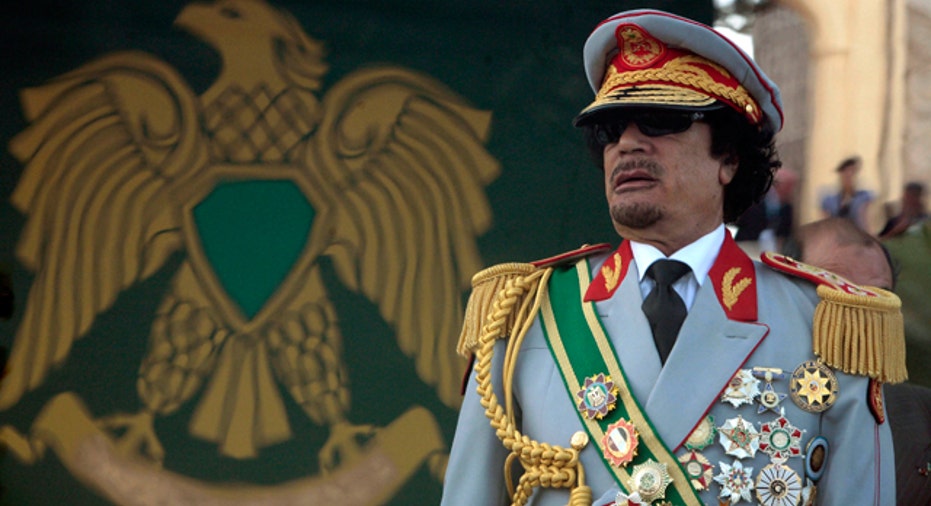Libya's Leader Not Going to Venezuela, Officials Say

Both Libya and Venezuela on Monday denied reports that Libyan leader Muammar Gaddafi was seeking asylum as a violent revolt gripped his country and would join his friend President Hugo Chavez in the South American oil producing nation.
Fueling rumors in the media, British Foreign Secretary William Hague said he had seen information to suggest Gaddafi had fled Libya and was on his way to Venezuela, a fellow OPEC member.
But Venezuela's information minister said Gaddafi, who has ruled Libya for more than 40 years, was not coming.
"He is not traveling to Venezuela," Information Minister Andres Izarra told Reuters in Caracas.
His comments were matched by the Libyan Deputy Foreign Minister Khalid Kayem, who said the reports were "groundless."
Venezuelan Foreign Minister Nicolas Maduro said in a statement he had spoken by telephone to his Libyan counterpart Moussa Koussa, who told him Gaddafi was still in Tripoli.
"Koussa said ... Gaddafi is in Tripoli, exercising the powers given to him by the state and addressing the situation in the country, thereby refuting the comments made to the press in an irresponsible manner by British Foreign Secretary William Hague," Maduro's office said in a statement.
Diplomats said the information Hague had referred to was separate from reports in recent days by several Arab media organizations that Gaddafi was headed to Venezuela.
Attracted to Gaddafi's revolutionary past, the socialist Chavez also casts himself as an anti-U.S. stalwart on the international stage, and the pair enjoy warm ties.
Gaddafi's rule appeared in increasing jeopardy as anti-government protests reached the capital, Tripoli, for the first time, with security forces killing dozens of people.
Chavez, a popular figure in much of the Muslim world who took office 12 years ago, has visited Libya half a dozen times. Gaddafi traveled to Venezuela in 2009 and gave Chavez one of the large tents he holds court in on foreign visits.
Some in Venezuela's opposition would like to see Chavez toppled in protests inspired by the revolutions in the Middle East and North Africa, but most politicians want to focus on beating him at the ballot box at 2012 presidential elections.
Major street unrest led to a short-lived coup against Chavez in 2002, but protests have since been mainly subdued.
Libya is Africa's fourth biggest oil exporter, while Venezuela is South America's top exporter of crude.
Brent oil futures surged to more than $105 a barrel for the first time since 2008 on Monday on fears the violence in Libya could lead to wider supply disruptions from the OPEC member.



















